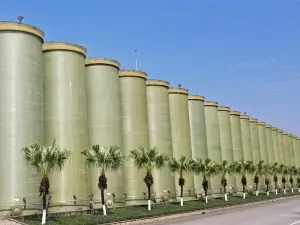
-
 Afrikaans
Afrikaans -
 Albanian
Albanian -
 Amharic
Amharic -
 Arabic
Arabic -
 Armenian
Armenian -
 Azerbaijani
Azerbaijani -
 Basque
Basque -
 Belarusian
Belarusian -
 Bengali
Bengali -
 Bosnian
Bosnian -
 Bulgarian
Bulgarian -
 Catalan
Catalan -
 Cebuano
Cebuano -
 China
China -
 China (Taiwan)
China (Taiwan) -
 Corsican
Corsican -
 Croatian
Croatian -
 Czech
Czech -
 Danish
Danish -
 Dutch
Dutch -
 English
English -
 Esperanto
Esperanto -
 Estonian
Estonian -
 Finnish
Finnish -
 French
French -
 Frisian
Frisian -
 Galician
Galician -
 Georgian
Georgian -
 German
German -
 Greek
Greek -
 Gujarati
Gujarati -
 Haitian Creole
Haitian Creole -
 hausa
hausa -
 hawaiian
hawaiian -
 Hebrew
Hebrew -
 Hindi
Hindi -
 Miao
Miao -
 Hungarian
Hungarian -
 Icelandic
Icelandic -
 igbo
igbo -
 Indonesian
Indonesian -
 irish
irish -
 Italian
Italian -
 Japanese
Japanese -
 Javanese
Javanese -
 Kannada
Kannada -
 kazakh
kazakh -
 Khmer
Khmer -
 Rwandese
Rwandese -
 Korean
Korean -
 Kurdish
Kurdish -
 Kyrgyz
Kyrgyz -
 Lao
Lao -
 Latin
Latin -
 Latvian
Latvian -
 Lithuanian
Lithuanian -
 Luxembourgish
Luxembourgish -
 Macedonian
Macedonian -
 Malgashi
Malgashi -
 Malay
Malay -
 Malayalam
Malayalam -
 Maltese
Maltese -
 Maori
Maori -
 Marathi
Marathi -
 Mongolian
Mongolian -
 Myanmar
Myanmar -
 Nepali
Nepali -
 Norwegian
Norwegian -
 Norwegian
Norwegian -
 Occitan
Occitan -
 Pashto
Pashto -
 Persian
Persian -
 Polish
Polish -
 Portuguese
Portuguese -
 Punjabi
Punjabi -
 Romanian
Romanian -
 Russian
Russian -
 Samoan
Samoan -
 Scottish Gaelic
Scottish Gaelic -
 Serbian
Serbian -
 Sesotho
Sesotho -
 Shona
Shona -
 Sindhi
Sindhi -
 Sinhala
Sinhala -
 Slovak
Slovak -
 Slovenian
Slovenian -
 Somali
Somali -
 Spanish
Spanish -
 Sundanese
Sundanese -
 Swahili
Swahili -
 Swedish
Swedish -
 Tagalog
Tagalog -
 Tajik
Tajik -
 Tamil
Tamil -
 Tatar
Tatar -
 Telugu
Telugu -
 Thai
Thai -
 Turkish
Turkish -
 Turkmen
Turkmen -
 Ukrainian
Ukrainian -
 Urdu
Urdu -
 Uighur
Uighur -
 Uzbek
Uzbek -
 Vietnamese
Vietnamese -
 Welsh
Welsh -
 Bantu
Bantu -
 Yiddish
Yiddish -
 Yoruba
Yoruba -
 Zulu
Zulu
Efficient Solutions for Air Pollution Control with Fiberglass Scrubber Technology
Understanding Fiberglass Scrubbers A Comprehensive Overview
Fiberglass scrubbers play a critical role in industrial applications, particularly in air pollution control and wastewater treatment. Their design and material properties offer unique advantages that make them a preferred choice in various sectors, including chemical processing, waste management, and even in municipal systems.
At their core, fiberglass scrubbers are designed to remove harmful pollutants and particulates from gas streams. The primary function of these scrubbers is to purify exhaust gases before they are released into the environment. Traditional materials used in scrubber construction often face challenges such as corrosion and degradation when exposed to harsh chemicals and high temperatures. However, fiberglass, known for its exceptional durability and resistance to chemical corrosion, emerges as a superior alternative.
The construction of fiberglass scrubbers involves layers of fiberglass reinforced with resin, which not only provides strength but also enhances resistance to corrosive elements commonly found in industrial emissions. This unique composition allows fiberglass scrubbers to operate effectively in acidic or alkaline environments without significant deterioration over time. As a result, they tend to have longer lifespans compared to their metal counterparts, making them a cost-effective solution in the long run.
One significant advantage of fiberglass scrubbers is their lightweight nature, which simplifies installation and reduces transportation costs. Unlike heavier materials, fiberglass can be easily maneuvered during setup, allowing for efficient use of space in facilities where every square foot counts. This flexibility in design also means that scrubbers can be tailored to meet specific operational needs, ensuring optimal performance across various applications.
fiberglass scrubber

Fiberglass scrubbers are particularly effective in removing volatile organic compounds (VOCs) and other hazardous pollutants. This capability is essential for industries looking to comply with stringent environmental regulations. Many manufacturing sectors face increasing scrutiny regarding their emissions, and utilizing fiberglass scrubbers can help in achieving compliance while also promoting a cleaner and safer environment.
Furthermore, the operational efficiency of fiberglass scrubbers is enhanced by their ability to integrate with various scrubbing technologies, such as packed bed or spray towers. Operators can choose the most effective system based on the type of contaminants they are dealing with and the specific conditions of the facility. This adaptability ensures that businesses can maintain high levels of air quality while effectively managing their waste streams.
In addition to air purification, fiberglass scrubbers can also play a role in wastewater treatment processes. They can be utilized to remove odors and pollutants from industrial effluents, contributing to overall environmental sustainability. By effectively managing waste, companies not only comply with environmental regulations but also enhance their corporate social responsibility profiles.
To sum up, fiberglass scrubbers represent a significant advancement in pollution control technology. Their robust construction, light weight, and versatility make them an ideal choice for various industrial applications. As environmental regulations continue to evolve and tighten, the demand for effective and durable scrubbing solutions like fiberglass scrubbers will likely increase, making them a vital component of sustainable industrial practices in the years to come.









